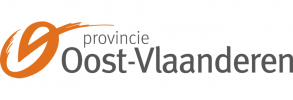With the support of

This project will seek to respond proactively to the growing problem of antibiotic resistance by developing, for 3 types of materials, innovative technological solutions to combat bacterial infections and the development of persistent forms.
The objectives of the AntiRési project will therefore be:
- To propose technological and alternative innovations: the aim will be to develop innovative solutions to combat antibiotic resistance, taking into account socio-economic and health issues, as well as cost and sustainability constraints.
- Diversifying antibacterial solutions: the project will seek to broaden the arsenal of solutions by exploring different antibacterial methods and modes of action.
- Mastering new processes: operators will study the development of effective production processes and implementation for new solutions.
- Disseminating innovative methods to social players: AntiRési will propose innovative methods to social players, including companies, health establishments and public authorities, to deal with the threat of antibiotic resistance.

This project includes three activities:
- A specific case study based on three types of materials: ceramics, metals and polymers/fabrics. These case studies will lead to the creation of effective antibacterial surfaces, opening up new prospects in various applications. Over the 4 years of the project, the development of specific cases of materials produced by companies in the area (and marketed in the area and more widely on the European and international markets) with improved properties will lead to complete and qualified systems (TRL 8).
- The implementation of a Network of Excellence, made up of the project operators, which will promote collaboration and the sharing of knowledge to accelerate the development of antimicrobial solutions.
- The development of a methodological guide, which will describe, by sector of activity, the best practices for the design, manufacture and use of solutions to improve antibacterial properties. This guide will be made available to economic and social players to help them adopt these new technologies.
Role of Centexbel
Centexbel will functionalize textiles by incorporating antimicrobial agents supplied by our project partners.
This will be achieved through the application of various techniques: padding, coating and (to a lesser extent) yarn extrusion.
The antimicrobial textile materials produced through these methods will subsequently undergo analysis via microscopy, along with assessments of their strength, abrasion resistance, comfort, and, importantly, their antimicrobial efficacy.
Consortium
To meet the challenges, it was necessary to form a consortium of partners covering the entire value chain, including academic units, research centres and competitiveness clusters, active in both materials and health sciences. It is thanks to the INTERREG framework that all the project's operators have been able to use their complementary skills and expertise to come up with AntiRési.
AntiRési stands out for the technological innovations it proposes, exploring various approaches such as the doping of materials, the deposition of ZnO-type layers, hydrogels and coatings functionalised by phages or bacteriolysins, deposition by sol-gel method, etc. These methods offer a variety of options for the development of new materials. These methods offer a variety of options for creating antibacterial surfaces, enabling a significant diversification of the solutions available. The implementation of the Network of Excellence and the drafting of the methodological guide will be necessary to promote the solutions developed.
In conclusion, the AntiRési project represents a proactive and innovative response to the problem of antibiotic resistance, by putting in place a cross-border approach that brings together operators in the FWVL area to develop effective, sustainable and economically viable antibacterial solutions. This project will help to strengthen the area's research and innovation capabilities and support economic growth while improving public health.
AntiRési Project Partners
Belgian Ceramic Research Centre (project leader)
- University of Reims Champagne-Ardenne
- CRITT Matériaux Innovation
- Université Polytechnique Hauts-de-France
- CERGroupe
- Euramaterials
- University of Mons
- Centexbel
Financing
Total budget: € 3,480,961.89
Financed 60%: € 2,088,577.10







